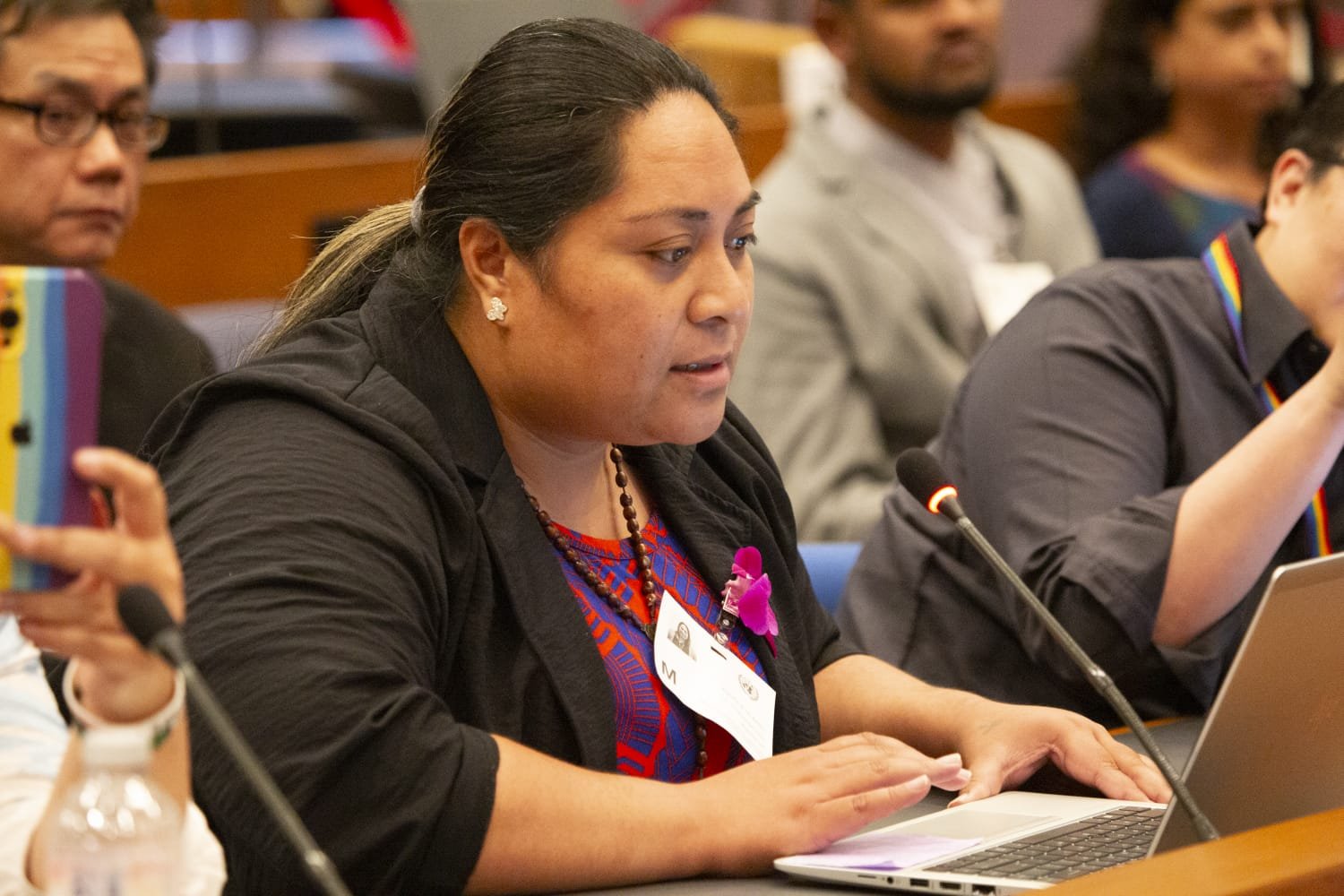Antonia Lili’s Intervention in the Seventh Asian and Pacific Population Conference
The Seventh Asian and Pacific Population Conference, held in November 2023, set sights on tackling crucial issues facing the Asia Pacific, a region home to 60% of the world's population. Convened by UN ESCAP and UNFPA, it reviewed progress on development declarations and programs, while highlighting intersecting population and development challenges. The conference coincided with significant anniversaries and milestones, like the 75th year of the Universal Declaration of Human Rights, underscoring the urgency of addressing inequalities and vulnerabilities.
As the Asia and the Pacific experience diverse demographic shifts, including aging populations, declining fertility rates, and increased migration, the conference acknowledged these complexities and recognized the critical juncture many countries face.
Antonia Lili of First Pasefika Fono Network for the APPC gave this intervention as a representative of the migrant sector, from civil society during the first day of the Asia Pacific Population Conference held in Bangkok, Thailand on November 15-17, 2023:
”Talofa lava, Kia Orana, Malo e lelei, Fakaalofa lahi atu, Taloha ni, Halo ola keta, Ni sa bula Vinaka, warm pacific greetings! E nga mana, e nga reo, e nga Iwi, e rau Rangatira ma. tena koutou katoa. I am Antonia Lilii, a Samoan living in Aotearoa/New Zealand. I represent migrants from 25 countries that convened for the CSO and youth forum on 13-14 November.
When floods hit New Zealand this year, many temporary migrant farm workers, many of whom are Pacificans, lost their jobs, were stranded, and not properly compensated. This is only but a peak into their vulnerability, many of whom were treated like modern-day slaves, some housed in freezing and damp accommodations, their passports taken “for safekeeping”, threatened not to join or form unions or else they will not be allowed back for the next season. Without decent jobs back home, with their island countries slowly submerging in rising seawater, many Pacificans are forced to endure.
This is the reality of migrants across the Asia Pacific. The general erosion of migrants’ rights is unaddressed in the population and development discourse. And while migration is seen positively, migrants and refugees are perceived and treated otherwise.
I stand here before you today not only as a representative of migrants and refugees, but also as a trade unionist, a climate activist, and a mother.
Our present is not only at stake in decisions made by governments but the future of millions of our youth and children. Here are some recommendations coming from the Call to Action CSO and Youth Forum statement:
Uphold international human rights and decent work standards for all.
Provide access for all migrants and refugees, regardless of status, to health, including sexual and reproductive health rights, services, justice, and pathways to citizenship.
Protect women migrant leaders and women human rights defenders from all forms of violence, harassment and intimidation.
Address the root causes of forced migration and displacement by creating jobs back home, justly and peacefully resolving political conflict, fundamentalism and war, and the climate crisis.
Finally, value migrants and refugees for their rights and well-being, not only for their economic contribution to society. Ensure their meaningful participation here and in all advocacy spaces, like the Global Compact for Migration, while addressing challenges like xenophobia, language, and digital divide.
For many years others have spoken on our behalf, now we speak for ourselves. Thank you very much.”
Read more about the Seventh Asian and Pacific Population Conference here.

